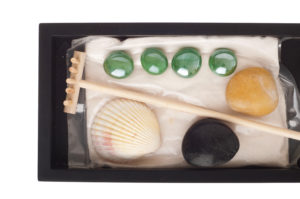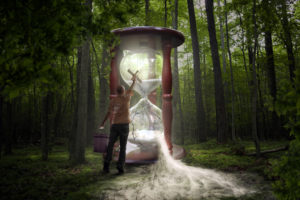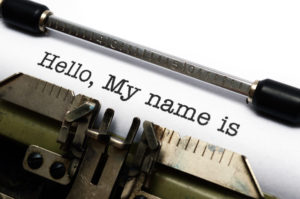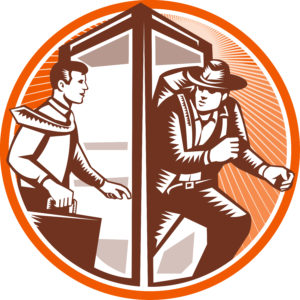Quick links, bringing you great articles on writing from all over the web.
So this! At Writer UnBoxed, Jessica Lourey discusses the therapeutic effect of writing. Any good therapist will tell you the benefits of writing, while Jessica takes it one step further. The therapy of writing a novel, even if you never publish it.
~ * ~
The Therapeutic Benefits of Writing a Novel
by Jessica Lourey
 Please welcome guest Jessica Lourey (rhymes with “dowry”) whose new book Rewrite Your Life: Discover Your Truth Through the Healing Power of Fiction is the only book that shows you how to transform your facts into a compelling, healing novel. Jessica is a tenured professor of creative writing and sociology, a regular Psychology Today blogger, a sought-after workshop leader and keynote speaker who delivered the 2016 “Rewrite Your Life” TEDx Talk, and a leader of transformative writer’s retreats.
Please welcome guest Jessica Lourey (rhymes with “dowry”) whose new book Rewrite Your Life: Discover Your Truth Through the Healing Power of Fiction is the only book that shows you how to transform your facts into a compelling, healing novel. Jessica is a tenured professor of creative writing and sociology, a regular Psychology Today blogger, a sought-after workshop leader and keynote speaker who delivered the 2016 “Rewrite Your Life” TEDx Talk, and a leader of transformative writer’s retreats.
Jessica (Jess) is also the author of the critically-acclaimed Murder-by-Month mysteries, that have earned multiple starred reviews from Library Journal and Booklist. The next one is due out in September 2017: March of Crime. Her other novels are The Catalain Book of Secrets, Salem’s Cipher, The Toadhouse Trilogy: Book One, May Day, June Bug, Knee High by the Fourth of July, August Moon, September Fair, October Fest, November Hunt, December Dread, January Thaw, and February Fever.
Connect with Jessica on her blog, on Facebook, and on Twitter.
The Therapeutic Benefits of Writing a Novel
When my husband died unexpectedly in 2001, I’d never heard of expressive writing. And you know what? It wouldn’t have mattered if I had. Three months pregnant, raising a three-year-old, and suddenly a widow, the last thing I wanted to do was spend even one sharp second journaling about how I felt. No offense to Dr. Pennebaker, the founder of the expressive writing movement. It’s just that I couldn’t survive reliving the pain of my husband’s suicide, not then, not on my own. I needed to convert it, package it, and ship it off.
So I began writing fiction.
Read the full post on Writer UnBoxed
~ * ~
If you liked this article, please share. If you have suggestions for further articles, articles you would like to submit, or just general comments, please contact me at paula@publetariat.com or leave a message below.

 by
by  Has a map ever challenged a pre-conceived notion that you had about a location? Please welcome
Has a map ever challenged a pre-conceived notion that you had about a location? Please welcome  Welcome Ginger Monette who is here to show us how to build an author platform and send your book off with a bang!
Welcome Ginger Monette who is here to show us how to build an author platform and send your book off with a bang!
 How do you know when to start a new scene in your story? And how do you know when to end it? What’s the reasoning you use?
How do you know when to start a new scene in your story? And how do you know when to end it? What’s the reasoning you use? As a writer with no formal qualifications, i.e. no tertiary degree in writing, I have looked for other ways to learn about the craft of writing.
As a writer with no formal qualifications, i.e. no tertiary degree in writing, I have looked for other ways to learn about the craft of writing. By Gabriela Pereira
By Gabriela Pereira As some folks know, I spent my misguided youth—all right, all right, my misguided middle age—as a copywriter. Which means that writing blurbs for my books was a piece of cake, right?
As some folks know, I spent my misguided youth—all right, all right, my misguided middle age—as a copywriter. Which means that writing blurbs for my books was a piece of cake, right? Please welcome guest
Please welcome guest  My treadmill movie the other day was Fast Five.
My treadmill movie the other day was Fast Five. by
by  The ultimate decision-maker at a publishing house in whether to offer a contract has changed over the past several years. Having done my share of presentations at publishing committees, I soon learned that anyone can scuttle a project. All he or she needs to do is vociferously offer negative opinions about it. By questioning the feasibility of making money on the book (which is the bottomline), that person knows what the outcome of the discussion will be. The tide will turn against the project. But one individual on the committee has the power to sway others to his or her opinion more effectively than anyone else.
The ultimate decision-maker at a publishing house in whether to offer a contract has changed over the past several years. Having done my share of presentations at publishing committees, I soon learned that anyone can scuttle a project. All he or she needs to do is vociferously offer negative opinions about it. By questioning the feasibility of making money on the book (which is the bottomline), that person knows what the outcome of the discussion will be. The tide will turn against the project. But one individual on the committee has the power to sway others to his or her opinion more effectively than anyone else.
 by
by 

 Unclear thinking is an enemy of the writer, and it’s most often about being lazy and not fully imagining your story. Write with clarity of purpose, and your writing comes alive.
Unclear thinking is an enemy of the writer, and it’s most often about being lazy and not fully imagining your story. Write with clarity of purpose, and your writing comes alive. Today’s guest post is by
Today’s guest post is by